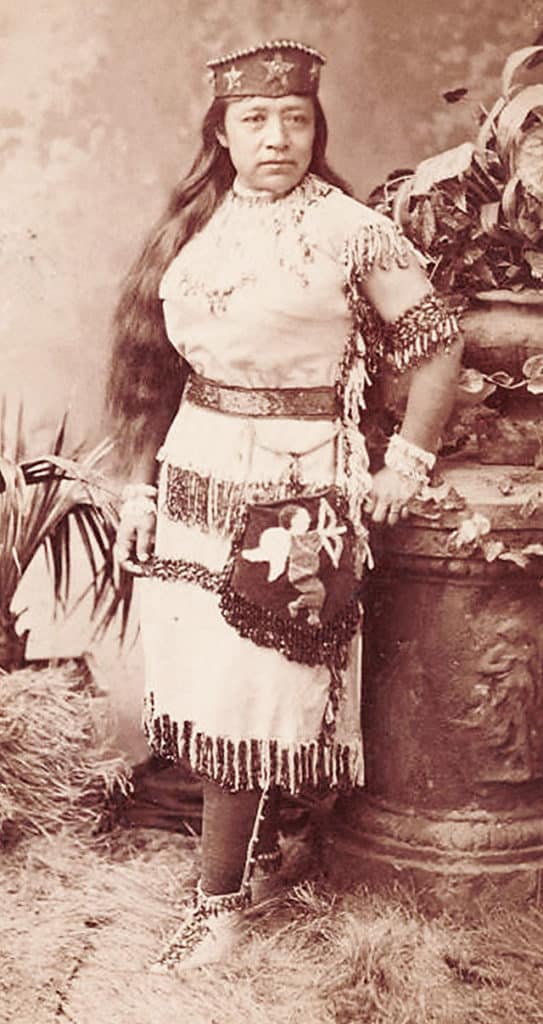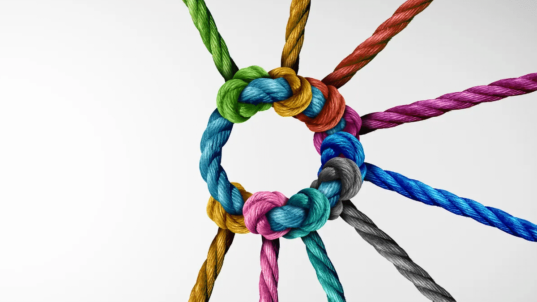
Sarah Winnemucca c. 1883
Sarah Winnemucca was born in 1844 to the Paiute nation in what is now western Nevada. When she was six, she went to California to be with her grandfather. Her grandfather introduced her to white settlers, thinking it was important for her to learn their language and culture. When Sarah was 13, he arranged for her to live and work in the home of a white settler, Major Ormsby, as a companion for Ormsby’s daughter. It was at this time that she perfected her English language skills.
When silver was discovered in Sarah’s home area, tensions worsened between the Paiutes and the white settlers. U.S. forces wanted to establish themselves as the dominant force in the area. Using false accusations of Paiute invasions, U.S. forces raided Sarah’s family camp, killing all but one member of the family. Eventually, the federal government forced the Paiutes to move to territory in eastern Oregon.
Initially the Paiutes thrived in their new territory under a compassionate Indian agent. When a new agent was appointed, however, the relations between Paiutes and the federal government quickly deteriorated and conflict broke out.
Again, the Paiutes were forced to move, this time to the state of Washington, to settle in what was essentially a concentration camp. Sarah became an activist for her people, using her language skills to raise awareness of the injustices of the federal government. Still, when the Paiutes requested permission to leave the concentration camp, they were refused.
Sarah began a speaking tour in the east. She wrote her autobiography, Life Among the Paiutes, becoming the first Native American woman to publish a book. She also created a school to promote the Paiute culture and language. Unfortunately, the school only lasted for a few years, since the federal government promoted the use of boarding schools to encourage assimilation and to eradicate native cultures.
In her time, Sarah’s efforts brought greater awareness to the plight of Native Americans. But there was little improvement in federal policies toward Native Americans. When she died at the age of 47, little had changed. Her book, however, has given us a lasting sense of the atrocities of the federal government toward Native Americans.
Just imagine what it means to be a mediator between your own people and a colonizing power. How might listening today help us to begin to repair the harms done to native peoples? What actions could we take in our own time to honor Sarah’s legacy?
* * *
“For Shame! For Shame! You dare to cry out Liberty, when you hold us in places against our will, driving us from place to place as if we were beasts.” – Sarah Winnemucca
This is part of our “Just Imagine” series of occasional posts, inviting you to join us in imagining positive possibilities for a citizen-centered democracy.



